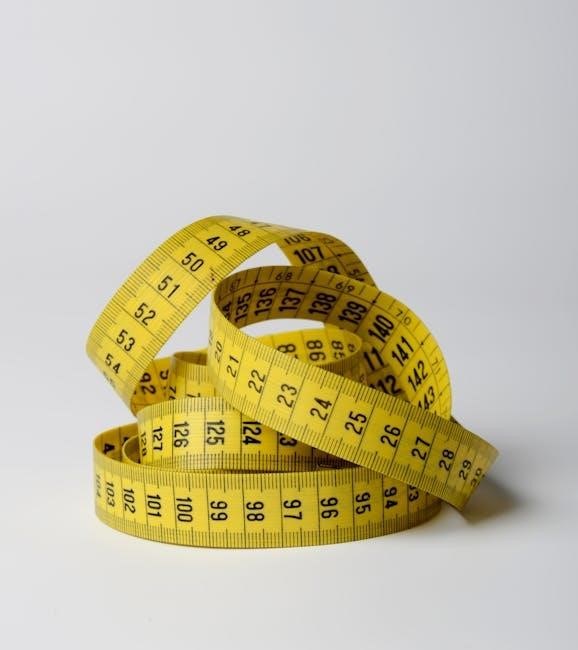denver developmental scale pdf
- Published
- in PDF
The Denver Developmental Scale is a comprehensive tool assessing developmental milestones in children. It evaluates gross motor, fine motor, language, and personal-social skills, aiding early identification of delays. Download PDF for detailed insights into its application and effectiveness in early childhood development.
Overview of the Denver Developmental Screening Test (DDST)
The Denver Developmental Screening Test (DDST) is a widely used tool designed to identify developmental delays in children from birth to six years. It assesses key domains such as gross motor, fine motor, language, and personal-social skills. The test is administered through observation and interaction, providing insights into a child’s developmental progress. Its simplicity and effectiveness make it a valuable resource for pediatricians, educators, and parents. Download the PDF for detailed guidelines and applications.
Importance of Developmental Screening in Early Childhood
Developmental screening in early childhood is crucial for identifying delays and ensuring timely interventions. The Denver Developmental Screening Test (DDST) plays a key role in monitoring milestones, enabling early detection of potential issues. Early identification of delays in areas like gross motor, fine motor, language, and personal-social skills can significantly improve long-term outcomes. Regular screening helps parents and professionals provide targeted support, fostering healthy development and personalized care for children. Download the guide for more insights.

History and Development of the Denver II
The Denver II was developed in 1967 as an evolution of the original Denver Developmental Screening Test. It has been standardized in many countries and updated to reflect modern developmental norms, ensuring accurate assessment of children’s growth. The tool remains a cornerstone in early childhood development evaluation. Learn more about its history and updates.
Creation and Evolution of the Denver Developmental Screening Test
The Denver Developmental Screening Test (DDST) was created in 1967 by William K. Frankenburg and colleagues to assess developmental milestones in children; Initially designed for infants and young children, it focused on identifying delays in gross motor, fine motor, language, and personal-social skills. Over time, the test evolved into the Denver II, incorporating updated research and cultural adaptations. Its standardized approach ensured reliability across diverse populations, making it a widely accepted tool for early childhood development assessment. Explore more about its evolution.
Standardization and Updates Over the Years
The Denver Developmental Screening Test (DDST) was standardized in 1967 using a large, diverse sample of children. It was later updated to the Denver II in 1992, incorporating new norms and cultural adaptations. The test has undergone periodic revisions to reflect current research and ensure sensitivity to developmental changes. These updates have enhanced its reliability and applicability across different populations. The Denver II remains a trusted tool for early childhood assessment, with materials like the Denver II manual providing detailed guidance.

Key Features and Components of the Denver II
The Denver II assesses developmental milestones in children from birth to six years, covering gross motor, fine motor, language, and personal-social skills. It provides age-specific norms to identify delays and monitor progress, serving as a valuable tool for early childhood assessment. Download the PDF for a detailed overview of its components and applications.
Developmental Domains Assessed
The Denver II evaluates four primary developmental domains: gross motor, fine motor, language, and personal-social skills. Gross motor skills involve large muscle groups, such as walking and balance. Fine motor skills focus on smaller muscle movements, like drawing or using utensils. Language assesses communication abilities, including verbal expression and comprehension. Personal-social skills measure independence, self-awareness, and interpersonal interactions. These domains provide a holistic view of a child’s development from birth to six years, ensuring early identification of potential delays. Download the PDF for detailed insights.
Structure of the Denver Developmental Screening Test
The Denver II consists of 125 items administered through interviews and observations. It assesses developmental milestones across four domains, with items grouped by age ranges. Each item evaluates specific skills, such as motor abilities or language use. Scoring is based on age norms, with results indicating whether a child is developing typically or if delays are present. The test is designed for children from birth to six years, ensuring early detection of potential developmental issues. Download the PDF for a detailed breakdown.

Purposes and Applications of the Denver II
The Denver II identifies developmental delays in children, aiding early detection and intervention. It is widely used in clinical and educational settings to support child development. Download PDF for detailed insights.
Identifying Developmental Delays in Children
The Denver II is a valuable tool for identifying developmental delays in children by assessing key milestones across gross motor, fine motor, language, and personal-social domains. It compares a child’s performance to standardized developmental expectations, helping professionals detect early signs of potential delays; This screening enables timely interventions, improving outcomes for children. The test’s structured approach ensures accuracy and reliability, making it a trusted resource for pediatricians, educators, and therapists. Download PDF for detailed guidelines.
Use in Clinical and Educational Settings
The Denver II is widely utilized in both clinical and educational environments to assess children’s developmental progress. In clinical settings, it helps identify delays and monitor interventions. Educators use it to create tailored learning plans and track developmental milestones. The tool’s structured format allows professionals to collaborate effectively, ensuring comprehensive support for children. Its adaptability makes it a valuable resource for diverse settings, fostering early intervention and personalized care. Download PDF for detailed insights.

How to Use the Denver Developmental Scale
The Denver II is administered through observation and standardized procedures, ensuring accurate assessment of developmental milestones. Professionals follow specific guidelines to score and interpret results effectively. Download PDF for detailed instructions.
Administration and Scoring Guidelines
The Denver II is administered through observation and standardized procedures, ensuring accurate assessment of developmental milestones. It includes 125 items, scored based on age norms, with results categorized as normal, caution, or delayed. Each task, like using yarn or dolls, has specific instructions. Scoring guidelines emphasize comparing a child’s performance to standardized norms, ensuring reliable results. Professionals must follow detailed protocols to ensure consistency and accuracy in evaluation. Download PDF for full administration details.
Interpreting Results and Determining Next Steps
The Denver II results are categorized into “normal,” “caution,” or “delayed,” based on age-specific norms. A “normal” result indicates typical development, while “caution” or “delayed” suggests potential developmental concerns. Follow-up actions include monitoring, referral to specialists, or early intervention services. Results guide parents and professionals in supporting the child’s growth. Accurate interpretation ensures timely interventions, promoting optimal developmental outcomes. Download PDF for detailed interpretation guidelines and next-step recommendations.

Developmental Milestones Assessed by the Denver II
The Denver II evaluates key developmental milestones, including gross motor, fine motor, language, and personal-social skills, providing a comprehensive assessment of a child’s growth. Download PDF for detailed charts and guidelines.
Gross Motor Skills
The Denver II assesses gross motor skills, which include large muscle movements like sitting, standing, walking, and running. It evaluates milestones such as chin up in prone position, turning head, and sucking well in infancy. As children grow, the test tracks more complex movements, such as walking independently by 12 months and running by 18 months. These observations help identify delays in physical development, ensuring early intervention for improved outcomes. Download PDF for detailed milestone charts.
Fine Motor Skills
The Denver II evaluates fine motor skills, focusing on small muscle movements and hand-eye coordination. It assesses abilities like picking up small objects, using hands together, and transferring toys. By 12 months, children should demonstrate raking and grasping, while by 18 months, they should show skills like scribbling and building towers. These milestones help identify potential delays in dexterity and coordination, ensuring timely intervention. Download PDF for detailed fine motor assessments.
Language and Communication
The Denver II assesses language and communication skills, tracking progression from cooing to complex sentences. By 6 months, infants should coo; by 9 months, say “mama” or “dada.” At 12 months, children should use gestures like waving, and by 24 months, combine two words. These milestones help identify delays, ensuring early intervention. Download PDF for a detailed guide on assessing language development.
Personal-Social Skills
The Denver II evaluates personal-social skills, such as self-awareness, interaction, and emotional development. Key milestones include smiling at a mirror by 6 months, showing affection by 12 months, and playing pretend by 24 months. These skills reflect a child’s ability to engage with others and understand their environment. Download PDF for a detailed guide on assessing personal-social development and identifying potential delays in social-emotional growth.
Reliability and Validity of the Denver II
The Denver II has demonstrated strong reliability and validity through standardized testing across diverse cultures. Its longitudinal design ensures accurate developmental tracking, making it a trusted screening tool. Download PDF for detailed insights into its psychometric properties and cross-cultural effectiveness.
Research Supporting the Test’s Effectiveness
The Denver II has been extensively researched and validated across diverse populations. Studies demonstrate its effectiveness in identifying developmental delays in children. Standardized in multiple countries, including Turkey, it reliably assesses gross motor, fine motor, language, and personal-social skills. Research highlights its longitudinal design and cultural adaptability. The test has been widely used since 1967, with updates ensuring contemporary relevance. Its effectiveness is supported by comparisons with tools like the Bayley Scales, confirming its value in early childhood assessment. Download PDF for detailed research findings.
Comparisons with Other Developmental Assessment Tools
The Denver II is often compared to tools like the Bayley Scales of Infant Development and the Ages & Stages Questionnaire (ASQ). Unlike these, the Denver II focuses on observational screening rather than in-depth assessment. It is praised for its simplicity and effectiveness in identifying delays. While the M-CHAT is specific to autism screening, the Denver II offers a broader assessment of developmental domains. Its standardized approach ensures reliability across diverse populations, making it a preferred choice for early childhood professionals. Download PDF for more details.

Limitations and Considerations
The Denver II is a screening tool, not diagnostic, with limited depth in certain developmental areas. Cultural biases and administrator training can impact accuracy. Download PDF for details.
Potential Challenges in Administration
The Denver II requires trained administrators to ensure accuracy, as improper techniques can lead to inaccurate results. Cultural biases may affect test outcomes, requiring careful interpretation. Children’s cooperation is essential, and uncooperative behavior can hinder assessment. Additionally, distinguishing between typical developmental variations and actual delays demands careful analysis to avoid over-referrals or missed issues. Download PDF for detailed administration guidelines.
Cultural and Individual Variations
The Denver II considers cultural and individual differences in child development. While standardized across diverse populations, variations in cultural norms and child-rearing practices can influence results. Individual developmental pace and unique behaviors may also affect outcomes. Cultural biases in test design could impact accuracy, requiring careful interpretation. Administrators must account for these factors to avoid misclassification. Download PDF for insights into addressing these variations effectively.
Resources for the Denver Developmental Scale
The Denver II manual and materials are available through Denver Developmental Materials, Inc., offering detailed guides, training, and support for professionals. Visit their website for comprehensive resources and updates.
Accessing the Denver II Manual and Materials
The Denver II manual and materials are available through Denver Developmental Materials, Inc., at P.O. Box 371075, Denver, Colorado 80237. Professionals can access the manual, scoring guides, and training resources by visiting their official website or contacting them directly at 1-800-419-4729. The manual provides detailed instructions, developmental milestone charts, and scoring guidelines. Additional resources, such as training materials and certification programs, are also offered to ensure accurate administration and interpretation of the test.
Training and Certification for Professionals
Professionals can obtain training and certification for the Denver II through Denver Developmental Materials, Inc. The program includes workshops, online courses, and hands-on practice to ensure accurate test administration. Certification is essential for professionals to interpret results effectively and identify developmental delays. Resources such as training manuals and video guides are provided to support learning. Visit their official website or contact them at 1-800-419-4729 for more details on certification programs and materials. This ensures reliable and standardized use of the Denver II in clinical and educational settings.

Case Studies and Practical Examples
The Denver II has been applied globally, with case studies in Turkey and other countries demonstrating its effectiveness in identifying developmental delays in diverse settings.
Real-World Applications of the Denver II
The Denver II is widely used in clinical and educational settings to assess developmental milestones in children. It has been standardized in numerous countries, including Turkey, and is applied in diverse cultural contexts. The test evaluates gross motor, fine motor, language, and personal-social skills, helping professionals identify delays early. Its practicality makes it a valuable tool for monitoring progress and guiding interventions. Many case studies highlight its effectiveness in real-world scenarios, demonstrating its adaptability and reliability across different populations.
Success Stories and Outcomes
The Denver II has proven instrumental in improving developmental outcomes for children worldwide. Early identification of delays has led to timely interventions, enhancing cognitive, motor, and social skills. Clinicians report significant improvements in children’s developmental trajectories after targeted support. Parents and educators value its user-friendly design, enabling proactive monitoring. The tool’s reliability across diverse populations has fostered equity in developmental care. Success stories highlight its role in reducing long-term delays, demonstrating its lasting impact on child development and well-being.
The Denver Developmental Scale remains a vital tool in early childhood development, providing insights into developmental milestones and guiding interventions to support children’s growth effectively.
The Denver Developmental Scale is a cornerstone in assessing childhood development, providing insights into gross motor, fine motor, language, and personal-social skills. It aids in early identification of delays, enabling timely interventions. By evaluating developmental milestones, it supports tailored strategies for children’s growth. The Denver Developmental Scale PDF serves as a valuable resource for professionals, ensuring comprehensive and effective developmental screening.
Future Directions and Innovations in Developmental Screening
The Denver Developmental Scale is expected to evolve with advancements in technology and research. Integrating digital tools and AI for more precise assessments is a future focus. Telehealth solutions will expand access to developmental screening. Cultural adaptability and updated milestones will ensure the test remains relevant for diverse populations. These innovations will enhance early identification of delays and support personalized interventions. For detailed insights, refer to the Denver Developmental Scale PDF;
